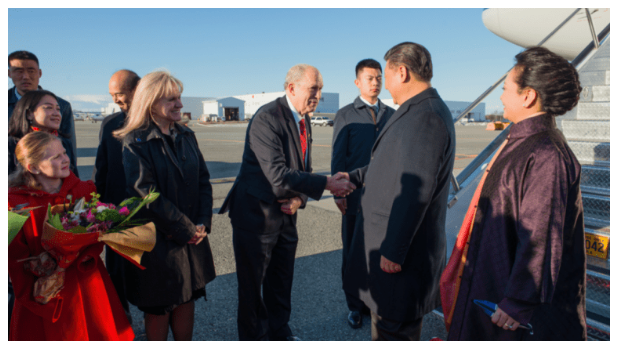
AND BY ‘OWE,’ HE MEANS …
For the past three years, the Walker Administration has paid only lip service to a huge debt owed to small oil explorers that came to Alaska to look for oil in Cook Inlet and the North Slope.
Instead of paying the credits owed, Gov. Bill Walker has stiffed the companies by paying only the required minimums.
The impact on Alaska’s reputation as a stable oil province has been felt around the world.
One company owed money by the State of Alaska has filed for bankruptcy, while others are getting nervous the State of Alaska could simply starve them to death.
Walker has another chance to get it right as he prepares his next budget for the Dec. 15 deadline. As he cuts a deal with China on the gasline this week, banks around the world are watching to see if he makes good on current promises. Bankers are waiting and growing impatient as they have to keep refinancing small oil companies who can’t make their own timely payments because of Walker’s actions.
A SHIFT IN APPROACH?
Last week, a slight shift of message occurred during a Senate Finance Committee meeting, when Sen. Anna MacKinnon asked Commissioner of Revenue Sheldon Fisher whether the Walker Administration understands that the State actually is obligated to pay these bills.
In a week full of dramatic hearings on criminal justice reform and opening the Arctic National Wildlife Refuge Coastal Plain for oil development, the nuanced answer Fisher gave might have been lost in the din.
“Yes, we acknowledge we owe the credits,” Fisher said. “And the only question is what is the rate of which we are going to pay them off and something we need to work on.”
It signaled a change in the Walker Administration doctrine, which has developed a hostile stance with not only major multinationals like Exxon, but now with small independent oil companies.
Fisher and the Office of Management and Budget are in the final stages of budget preparation. Gov. Walker must present to the Legislature his FY19 budget by Dec. 15, a budget that will be debated and signed during his re-election cycle.
THE BLUE CREST CASE
For the past three years, Walker has vetoed payments due to small oil explorers like Caelus Energy, Glacier Oil and Gas, ASRC, and Blue Crest.
These are among the companies lured north by the State of Alaska with promises of certain tax credits to entice them to explore for oil in Alaska. But, since the Walker Administration stopped paying those credits as soon as it took office, those small independent companies are having to explain to their own lenders why they are not getting paid the now-delinquent tax credits they were planning to use to service their bank debt.
In August of 2016, Blue Crest Energy of Fort Worth, Texas hit the pause button on its oil wells in Cook Inlet. It was getting ready to lay off 150 or more full-time workers. It could not afford to continue if the State was not going to pay it the money owed Blue Crest for getting the Cosmopolitan Unit into production.
“What (the governor’s action) did is create a tremendous distrust of the state’s integrity going into the future,” BlueCrest President J. Benjamin Johnson told Petroleum News in 2016. “Unless something is worked out to help the small oil companies work through the payment delay, this is going to have a long term negative impact to the state and will surely come into play as the state tries to obtain financing for new capital programs.”
HENDRIX

At the time, the governor’s oil and gas adviser, John Hendrix, said the Administration needed to see some production from the field so the state could get some royalties. The problem was, Blue Crest was producing and needed cash to keep going and it needed the State to pay its bill.